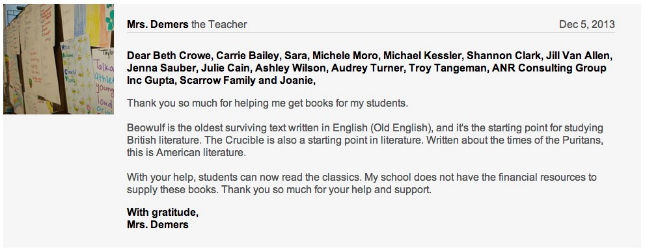
Happy belated New Year!!
When talking about resolutions and goals, most of the attention goes to fitness and health, or habits and hobbies.
But resolving to be bigger and better goes beyond our personal lives – as a nonprofit, your resolutions are to increase fundraising, reach more supporters, and tell better stories. And yet, the path to achieving those goals isn’t all that different from what we do outside of the office.
Here are three tips to keep in mind when making your 2014 resolutions – and reaching them:
1. Throw out that “21 days to make a habit” BS
Making Habits, Breaking Habits shares results from research studies on habit formation and maintenance.
According to author Jeremy Dean, it usually takes far more than the oft-quoted, yet little-supported claim that it takes 21 days to make a habit.
Whether it’s health-related or not, study participants generally needed anywhere from 50 to 66 days, or even more, to create a fully ingrained habit. Habits require more than just willpower, and your intentions behind them can make all the difference.
So what’s the takeaway for crowdfunding?
Whether you have resolved to thank donors more quickly, add fresh content to your website regularly, or send out consistent donor reports, remember that you likely won’t be on autopilot in less than a month.
Think about why you’re doing certain actions, and put more effort into doing it well, and what you want the outcome to be, more than about doing it every day just to check off a list.
2. Don’t try to do too much at one time
It’s easy to get ahead of ourselves and make a long list of 10 or more things we want to do and achieve in a year. And as we know in our personal lives, training for a marathon while learning to play guitar and Italian and cutting out sweets is a lot to work toward at once.
But cutting sweets and marathon training by June is reasonable, and summer guitar lessons leading to Rosetta Stone in the fall is also doable.
So what’s the takeaway for crowdfunding?
It’s much easier to achieve success rather than set yourself up for failure by establishing reasonable goals.
For instance: strive to get 25 new donors in two months for a short fundraising campaign in the spring, plan to grow your Facebook community by 200 people over the summer, and work towards bringing on a big partner for a longer campaign to raise $25,000 by year’s end.
Doing all of that in Q1? Nuts.
3. Make it personal
Our resolutions tend to be deeply personal – they are our mini measures of success, our way of taking generic, common goals, and applying them in a unique way.
We know that nonprofits and social good projects are challenging themselves more than ever to come up with creative and resonant marketing and personal calls to action.
The reasons why we click on a headline, give to a cause, or volunteer at an event aren’t just about liking something anymore; there’s something deeper and more subjective going on, something we can’t always put our finger on.
So what’s the takeaway for crowdfunding?
It’s easy to jump on a meme or a trend and create funny headlines, write all your blog posts as listicles, or copy-paste the same donor thank you email to everyone.
But the harder and more rewarding route is to personalize, personalize, personalize.
Go the extra mile.
If you’d get excited about a handwritten letter from a nonprofit, pick a group of supporters and take the time to write them. If you appreciate when a brand you like notices your online love for them and sends you some free products in return, think about how you can do the same for your donors.
Setting resolutions and goals should not be about creating unrealistic expectations, because the only thing you’re setting yourself up for is a failure.
As with our personal lives, it’s important to design fundraising campaign plans in the context of past successes and future growth potential. Consider your resources, and remember to frame your milestones and the steps to each one around your desired impact.
And perhaps most importantly in your quest to do good better, remember to have fun!




